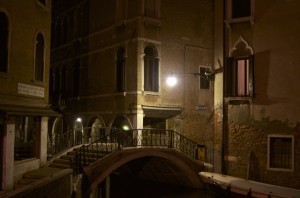An enchanted life has many moments when the heart is overwhelmed by beauty and the imagination is electrified by some haunting quality in the world or by a spirit or voice speaking from deep within a thing, a place, or a person.
From The Re-Enchantment of Everyday Life by Thomas Moore
 I recently returned to Venice, a place I’ve been visiting for many years and where I lived from 2007-2010. But even before I first went to Italy in 1990, or began to study the language, I used to dream of Italian words and places.
I recently returned to Venice, a place I’ve been visiting for many years and where I lived from 2007-2010. But even before I first went to Italy in 1990, or began to study the language, I used to dream of Italian words and places.
When I moved there, I believed I would stay for good. But then I realized the difficulties inherent in living away from my own country and knew I had to return to New York. When I went to Venice this time, the old longing was there with me. It felt like an ache. I thought I had gained a measure of knowledge and wisdom; thought I had learned that no place can be an answer to that longing that is forever in me, no matter where I go. But whatever I thought I knew intellectually, how I felt was an entirely different matter.
About a month ago, I attended a workshop given by Thomas Moore at the New York Open Center on the topic of Eros. And, as often happens in a synchronistic way, I immediately became immersed in Eros; or rather one part of Eros—pothos. Being in Venice always awakens it in me. Thomas Moore said that the Greeks honored pothos, the longing aspect of love, as a daimon, a kind of guiding spirit, and erected places of honor for it. He said that this kind of yearning makes us feel alive and gives us a sense of the future. Nostalgia, too, can evoke this feeling of yearning. I feel both in Venice—a desire for something I can’t even name, a reaching forward, and at the same time a desire to return to the past—the distant past, when Venice was an international center of art, commerce, music, scholarship, writing and publishing—when ritual and ceremony were a part of daily life.
In James Hillman’s essay “Pothos: the Nostalgia of the Puer Eternus,” (from the book Loose Ends) he speaks of pothos as being “the spiritual component of love or the erotic component of spirit,” and that it is “the longing towards the unattainable, the ungraspable, the incomprehensible.”
Plato said that Eros can lead us on a ‘ladder of love,’ in which divine ideas are awakened in us through partaking of physical beauty. But many times we become attached to the thing of beauty itself. The answer, however, is not to be found there. The longing points us towards something ineffable.
Even while I was in Venice, I sensed a lack. I attributed it to the fact that I would be leaving again soon. Then why didn’t I stay before? Was it pleasure or pain I felt-and feel, when I think of it now? Walking around Venice at night, it was as if my very pores wanted to drink in the antiquity: the old bricks, stones, and monuments felt like lovers to me.
My last night in Venice I had a dream of being in a house where I once lived. I needed to pack up and leave. There were a lot of objects lying around. I picked up a few things and then realized that among them was a painting of Dante and Beatrice. Dante, the great 14th century Italian writer, saw the beautiful Beatrice only a few times; but he loved her from a distance. When she died at an early age, she remained a powerful force in his life; and in Dante’s Divine Comedy, she is his guide through heaven.
